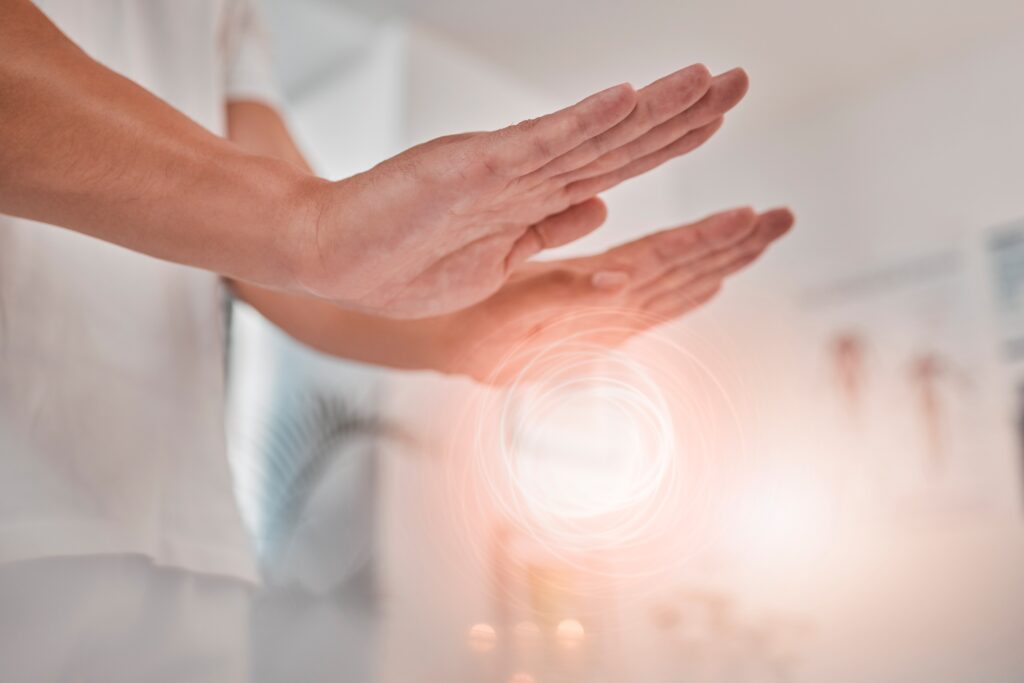
Alternative treatment methods enjoy great popularity. According to a representative survey of the Association of German Alternative Practitioners (BDH for short), there are around 46 million patient contacts each year. This means that about half of the German population makes use of alternative medicine.
But what exactly are the differences to classical orthodox medicine? Can a visit to an alternative practitioner usefully supplement or in some cases even replace conventional medical treatment?
As the name already suggests, a Heilpraktiker is active in the field of naturopathy. In common parlance, this is also referred to as alternative medicine. Heilpraktiker therefore do not have a medical license. They pursue a holistic approach to the relief of ailments. This means that Body and soul of a patient are considered and treated as a unit.
For this purpose, it is necessary not only to focus on the acute symptoms, but to research deeper causes. The procedures that alternative practitioners may and can offer are diverse. The ultimate goal is to Self-healing powers of the body to activate.
An alternative practitioner makes use of the extensive repertoire of naturopathy. Depending on the symptoms, the following methods can be used:
At the beginning of the treatment there is always a detailed anamnesis, in which you report your complaints and any previous illnesses. In order to get an even more detailed picture, the alternative practitioner can arrange for a blood test, tap you or listen to you. Afterwards, an individual therapy plan will be worked out for you.
It is important to know at this point that alternative practitioners are not allowed to prescribe prescription drugs. Your therapy will therefore be supplemented by homeopathic remedies such as globules or Schuessler salts if necessary.

Why do so many people choose to enlist the help of an alternative practitioner instead of the tried and true conventional medicine to trust? The reasons for this can be manifold:
While patients often feel unkindly processed in medical practices and feel the time pressure of doctors, the holistic view of the person and the individual development of a treatment concept is a supporting argument for turning to naturopathy.
Many patients find conventional medicine very inflexible in terms of diagnostic procedures and treatment methods. From experience, alternative practitioners are more willing to look for (gentle) alternatives.
When conventional medicine declares a patient to be out of treatment, alternative practitioners may still be able to find an alternative therapy that provides relief. Patients with chronic pain in particular can benefit enormously from this.
We have already listed the possible treatment methods of an alternative practitioner. In the following, we would like to deal with seven typical procedures in more detail:
The term homeopathy comes from the Greek and translated means similar suffering. The principle is very simple: A remedy that causes certain ailments is administered in a highly diluted dosage form (potency). Through this stimulus, the self-healing powers of the body are activated.
Acupuncture is a branch of traditional Chinese medicine. It is based on the assumption that the human body is permeated by energy pathways, so-called meridians. Qi - the energy of life - flows through these pathways.
If the energy flow is out of balance, this manifests itself in physical or mental complaints. The alternative practitioner places fine sterile disposable needles along the energy pathways to release existing blockages of vital energy. A total of 361 acupuncture points are located on the meridians.
Osteopaths diagnose and treat with their hands. In doing so, they use what is known as palpation. Manual palpation is used to feel muscles, fascia and bones, as well as blood vessels, nerves and even the internal organs. In this way, the osteopath or the alternative practitioner practicing osteopathy can recognize tensions and blockages and release them through targeted hand movements.
The principle of kinesiology is based on the assumption that disturbances in the energy balance become noticeable through weakened muscles. Therefore, kinesiologists use the so-called muscle test to make a diagnosis. Here, an indicator muscle (e.g. the upper arm muscle) is selected.
The kinesiologist addresses a specific issue, then applies pressure to the muscle and observes the muscle response. If the muscle sinks, this indicates that the addressed topic triggers stress. Acupressure or special breathing techniques are used to rebalance the energy flow.
The fact that fragrances influence mood has long been scientifically proven. This knowledge makes the Aromatherapy to take advantage of. Depending on the indication, aromatic oils can have an invigorating, calming, anxiety-relieving, pain-relieving or concentration-enhancing effect. Essential oils can also be used to treat flu-like infections without side effects.
You can use the oils in the form of fragrance sticks or fragrance lamps. Herbal or flower baths and inhalations are also possible applications. Some aromatic oils are also used in the form of a balm.
Leech therapy may sound like something that takes some getting used to, but this procedure has proven to be extremely effective in relieving pain. Here, medical leeches are placed on the painful part of the body or wound. The saliva of the little animals has anti-inflammatory, analgesic, antispasmodic and anticoagulant effects.
The healing effect of the Meditation has been known for thousands of years. At Learn to meditate you to let your thoughts come and go without making any evaluation. The inner SerenityThe energy you gain from this has a positive effect not only on your psyche, but also on your body.
You want to try meditation and don't really know how to start? In that case, we would like to offer our five-day Meditation Challenge to the heart. Our guided meditations will help you find your inner center and incorporate the meditation routine into your Everyday life to establish.
Surely the following scenario sounds familiar to you: You spend more than an hour in the waiting room of your doctor's office until you are finally called. But the examination, including the doctor's consultation, is then over within five minutes - in the worst case without satisfactory clarification of your complaints. This is often the case, especially with chronic pain.
The main difference between alternative practitioners and doctors is that in conventional medicine the focus is on the individual symptoms, while an alternative practitioner looks at the person as a whole. While a doctor's consultation lasts an average of eight minutes, the anamnesis with an alternative practitioner takes about an hour.
This holistic approach convinces many patients of alternative medicine. The mere fact of being seen as a human being and not being reduced to the physical symptoms can provide enormous psychological relief. The goal of curative therapy is to activate the body's self-healing powers. Alternative, naturopathic preparations and treatment methods are used for this purpose.
The costs for treatment by a non-medical practitioner will be not covered by the statutory health insurance funds. Although there is a fee schedule for non-medical practitioners, this only serves as a guide. Consequently, the fee is a matter of negotiation on a self-pay basis.
On average, you will need to budget between €90.00 and €180.00 for the comprehensive initial anamnesis. The follow-up appointments range on average between 45.00 € to 90.00 € per session.
If you want to call yourself a non-medical practitioner, you must be able to demonstrate sound medical knowledge. This is a protected professional title for which you have to take a medical examination at the public health office. This consists of 60 multiple-choice questions and a one-hour oral examination at the public health officer.
Nevertheless, the training is not regulated uniformly by law. You can acquire the specialist knowledge you need for the aforementioned exam on your own. There are many possibilities in this regard. Most aspirants take advantage of evening school courses, distance learning, direct or online courses. For working people, a part-time distance learning course at a Heilpraktikerschule is a good option.
The duration of the training courses varies from provider to provider. Depending on your previous knowledge, you should allow one to three years. Even if such a training course is not a prerequisite for taking the Heilpraktiker examination, you should not do without it, especially as a career changer in the medical field. Furthermore, the following requirements must be met:
As a general rule, serious illnesses should always be treated by a doctor. However, depending on the diagnosis, naturopathy can be a useful supplement, e.g. for pain relief.
In some cases, naturopathy can even be a gentle alternative to conventional medical treatment methods with few side effects. However, this must be assessed on a case-by-case basis.

